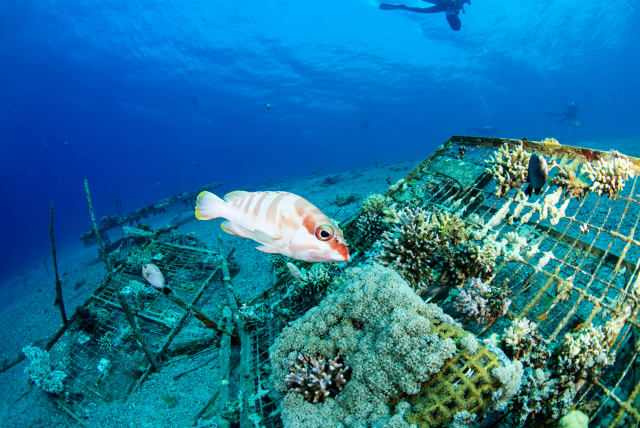Climate change drives global redistribution of fish species, new study finds

Examining thousands of populations from almost 150 fish species, the research shows that contrary to the prevailing view, rapid range shifts coincide with widescale reduction in the numbers of fish.
Climate change is driving the global redistribution of species. Many types of fish are currently moving toward cooler regions to escape from rising sea temperatures caused by a result of global warming, and the speed of such shifts varies greatly for different species. This phenomenon has caused their numbers to decline, according to an extensive international study led by researchers from Tel Aviv University (TAU).
Examining thousands of populations (groups of the same species that are genetically, spatially, or demographically separated from other groups) from almost 150 fish species, the researchers show that contrary to the prevailing view, rapid range shifts coincide with widescale reduction in the numbers of fish. According to the study, on average, a poleward shift of 17 kilometers annually can trigger a 50% drop in the abundance of fish populations.
The international study was led by doctoral student Shahar Chaikin and Prof. Jonathan Belmaker from the TAU’s School of Zoology in the Wise Faculty of Life Sciences and the Steinhardt Museum of Natural History. The paper has just been published in the leading scientific journal Nature Ecology and Evolution under the title “Marine fishes experiencing high-velocity range shifts may not be climate change winners.”
Study correlates two databases
For the first time, the new study correlated two global databases: One that tracks fish population size over time and a second one that compiles range shift velocities among marine fishes. Altogether, 2,572 schools of fish belonging to 146 species were studied, mainly from the Atlantic and Pacific Oceans in the Northern Hemisphere.
Belmaker explained that “we know that climate change causes animal species to move – northward, southward, upwards, or downwards – according to their location relative to cooler regions. In the mountains they climb upwards, in the oceans they dive deeper, in the Southern Hemisphere they move south toward Antarctica, and in the Northern Hemisphere they move north toward the North Pole. In the present study, we wanted to see what happens to species that move from one place to another: do they benefit by increased survivability, or are they, in fact, harmed by the shift – which was initially caused by greater vulnerability to climate change?”
Belmaker said that the team found that the faster fish shift toward the poles, the faster their abundance declines. Apparently, it is difficult for these populations to adapt to their new surroundings.
Chaikin added that species such as European seabass are shifting their geographical range more rapidly towards the poles and are more likely to become scarcer. Additional findings show differences between populations that are closer to or further from the poles – within the geographical range of a particular species. “While it might have been assumed that populations closer to the cooler polar margins of the species range would be less affected by climate change, we found that the opposite is true – fast poleward range shifts of populations from higher latitudes resulted in a more rapid decline in abundance compared to equatorial populations of the same species,” he said.
The researchers suggest that the new findings can and should guide environmental decision-makers by making possible a reevaluation of the conservation status of various species and populations. The study's results suggest that populations exhibiting rapid poleward range shifts require close monitoring and careful management. Thus, for example, pressures that threaten their survival can be mitigated through measures like fishing limits.
“The common belief is that rapid range shifts safeguard a species against local population decline,’ Belmaker said. “But in this study, we found that the opposite is true. Apparently, species rapidly shift their range in search of cooler temperatures because they are more vulnerable to climate change and consequently require special attention. Last year, our study that focused on local fish species along Israel's coastline resulted in similar findings – species that move towards deeper and cooler habitats in the face of rising water temperatures exhibited declining populations. In the next stage of our research, we intend to investigate this causal relationship in additional marine species other than fish.”
Jerusalem Post Store
`; document.getElementById("linkPremium").innerHTML = cont; var divWithLink = document.getElementById("premium-link"); if (divWithLink !== null && divWithLink !== 'undefined') { divWithLink.style.border = "solid 1px #cb0f3e"; divWithLink.style.textAlign = "center"; divWithLink.style.marginBottom = "15px"; divWithLink.style.marginTop = "15px"; divWithLink.style.width = "100%"; divWithLink.style.backgroundColor = "#122952"; divWithLink.style.color = "#ffffff"; divWithLink.style.lineHeight = "1.5"; } } (function (v, i) { });

